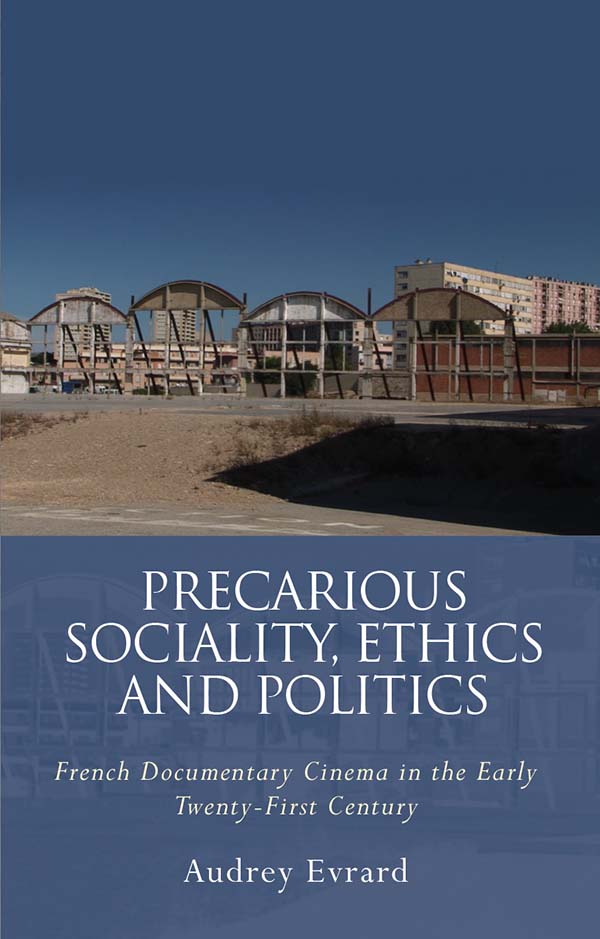Precarious Sociality, Ethics and Politics
French Documentary Cinema in the Early Twenty-First Century
Author(s) Audrey Evrard
Language: English
Genre(s): Politics
Series: French and Francophone Studies
- May 2022 · 264 pages ·216x138mm
- · Hardback - 9781786838421
- · eBook - pdf - 9781786838438
- · eBook - epub - 9781786838445
Precarious Sociality, Ethics and Politics: French Documentary Cinema in the Early Twenty-First Century brings an original perspective on French cinema’s ‘return to work’ in the early twenty-first century, focusing on the transformation of cinematic activism in view of the rapid dissolution of class narratives and solidarities. It is argued that, reckoning with widespread anxieties about job insecurity, social uncertainty, loss and invisibility in French society, filmmakers catalysed new modes of intervention, best described as embodied praxes of sociality. Combining rigorous film analyses with concepts borrowed from philosophy, sociology, geography and political theory, this study positions documentary as a privileged point of articulation between aesthetics, politics and ethics. The wide-ranging film corpus features well-established auteurs (Agnès Varda, Raymond Depardon, Denis Gheerbrant) and less canonical filmmakers to celebrate the vitality of contemporary French documentary cinema and its creative contributions to international discussions about work, precarity and social resilience.
Acknowledgements
List of illustrations
Notes to readers
Introduction
1 The vanishing factory
2 Global precarity, local struggles
3 Precarious filiations
4 No pain, no gain: the ordinary brutality of (the) work(place)
5 Portraits of life in France’s folds
Concluding remarks
Endnotes
Films cited
Bibliography


